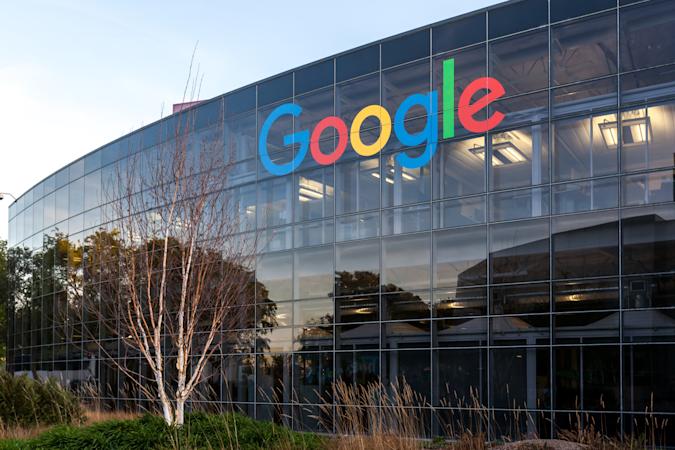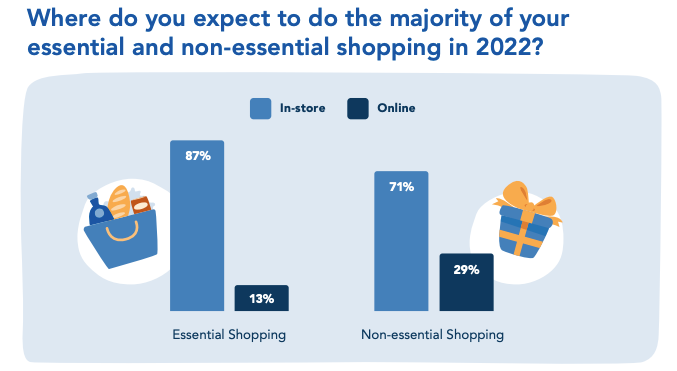Don't Be Evil 'Contract', Google Starline, Has COVID Changed Shopping?

Xooglers Sue Google for Abandoning 'Don't Be Evil'
Google removed the phrase "Don't Be Evil" from its official code of conduct in roughly 2015. Google replaced it with "Do the Right Thing" (coincidentally a Spike Lee film title). Today "Don't Be Evil" again appears at the end of the Code of Conduct. Now, three former engineers are suing the company, claiming Don't Be Evil is essentially a contractual term that Google violated. The three plaintiffs were employee-activists protesting Google's potential support of US immigration activities (e.g., family separation) during the Trump administration. Google terminated them (and another employee) for allegedly leaking confidential internal documents. They claim retaliation for their vocal activism, saying they were simply complying with the Don't Be Evil directive.

Our take:
- The Don't Be Evil contractual claim will likely fail. But plaintiffs may win on other claims in the suit under the California Labor Code.
- Originally idealistic companies such as Google, Facebook, Twitter, Amazon are now consumed by Wall Street concerns (i.e., revenue growth). Maybe it was naive to think otherwise.
- But some percentage of the population (mainly younger users) does take this "values stuff" seriously. And betraying values promises can erode trust...
Has COVID Really Changed Shopping?
One of the big topics of the past year, certainly in retail, but more broadly in local is: how permanent are the shopping patterns observed during COVID? Only time will answer that question. But data from ShopKick ("2022 Shopping Outlook") gives us an interesting, mixed picture. A majority (63%) of survey respondents (n=15,000) say their shopping habits "will be forever changed by the pandemic." This will reportedly show up in a few specific ways: 1) keeping essential items always on hand, 2) making larger and fewer trips to "the store," 3) buying more online and 4) caring less about buying particular brands. Yet even with the instinct to buy more online these consumers still plan to do most of their shopping offline -- roughly 80% of their shopping will still be done in stores.

Our take:
- One must always be cautious about surveys. This data is a projection of current conditions; actual future conditions could be very different.
- Consumers see themselves going into stores at higher levels than I would've expected. Vertical-specific shopping behavior will vary.
- We may be stabilizing at e-commerce levels of 20% to 25%. And stores will factor into consumer buying (trust, convenience) even if transactions are online.
Google's Starline – Not VR or AR Exactly
Google has showcased its advanced videoconferencing system Project Starline several times now. Calling it "videoconferencing" doesn't do it justice; the company refers to it as a "telepresence" system. It involves lots of expensive, powerful hardware. And Google says that Project Starline systems are currently deployed in multiple Google offices in the US. Watch the video if you haven't seen it, it's pretty compelling. Clearly, however, this is not something ordinary people will be able to afford. But it could dramatically change business communications and business travel accordingly. And I have a hunch that it has a future in the cluster of technologies that will together support and comprise "the metaverse."
Our take:
- This is a form of 3D rendering that is like augmented reality in some conceptual respects.
- It doesn't rely on wearable hardware to experience. But perhaps some version of Starline may be available eventually to ordinary people via wearables.
- The technology represents an interesting additional possibility in the larger debate over AR vs. VR and the metaverse.
Recent Analysis
- Local Search Ranking Factors 2021: What's New?, by Greg Sterling
- ICYMI: Reviews on Apple Maps: A Complete Guide, by Mike Blumenthal.
Short Takes
- FTC sues to block Nvidia's $40B takeover of Arm.
- CHEQ: 36% of Black Friday shoppers were bots, fake.
- Local "news deserts" expanding, enter social disinformation (WaPo).
- Buy Now Pay Later surges in popularity over Black Friday weekend.
- EU seeks to reclassify food-delivery/gig workers as employees.
- Google begins to add insurance information to local doctor SERPs.
- How Twitter's new privacy policy might hurt journalism.
- Google's second 2021 product reviews update rewards depth, detail.
- Toys R Us to open a new flagship at the American Dream mall in NJ.
- Will Facebook's metaverse be a sex-free Puritanverse?
- Google to launch its own smartwatch in 2022 under the Pixel brand.
- Facebook seeks dismissal of FTC's amended antitrust complaint.
- People buying virtual real estate in metaverse land boom/grab.
- Texas court voids Texas law limiting social media content moderation.
- Nearly 3 billion people in the world are not online.
Listen to our latest podcast.

How can we make this better? Email us with suggestions and recommendations.

